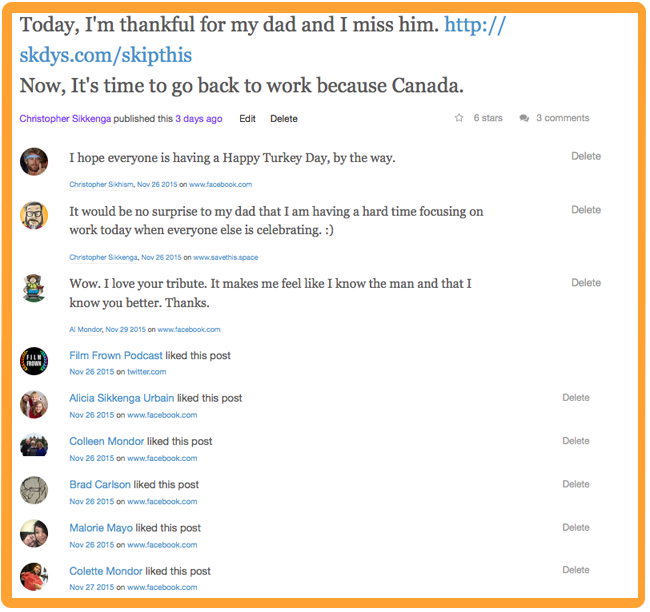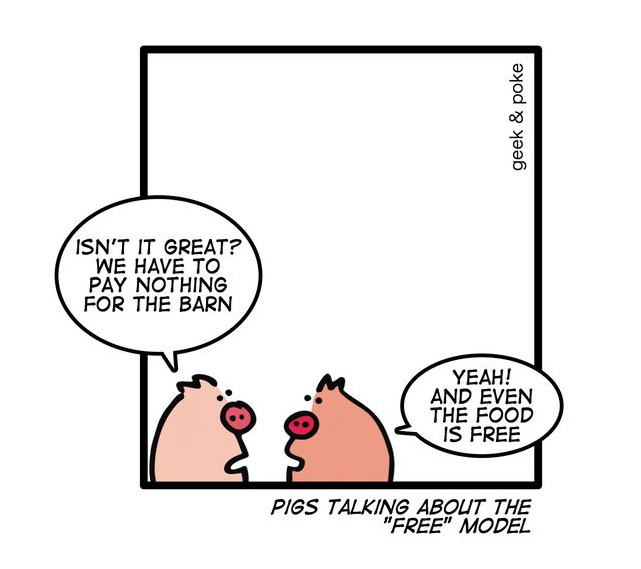
Welcome to my new space on the web. This site is the next step in controlling my data. I’ve stopped using Google Search, Gmail and the rest of the Google services in order to maintain my privacy and choose how I share my content. I no longer wish to be a product. Say what soapbox man? Search you are the product and learn all about how you aren’t a customer of Facebook or Google.
Why are we still using AOL?
In the internet’s infancy, you had to know the address, the URL for the page that you wanted to visit. While so many internet service providers were merely connecting people to the World Wide Web, America Online created a centralized network. They offered services, chatrooms and pages within their network. At one point, AOL had so many users that advertisers would rather have a page & keyword there than build a webpage online. Many AOL users had no need to access the world wide web, nor did they know how. This single company had a large amount of influence over online users until broadband internet came along and the even bigger cable companies were able to pull people off of AOL.
As the web and search engines grew, we no longer needed to have the exact URL recorded somewhere. The new search engines were so frequently visited that they were the best place to advertise. The data search engines recorded also became useful to advertisers.
Which terms do people search most often?
Which pages did users click on when using that term?
Who are these users?
How do you build your site so it appears at the top of a search?
Then, social networks like Twitter & Facebook came into existence. Now advertisers could get all sorts of user data. People who were reluctant to give out phone numbers and email addresses to online retailers were more than happy to share both (and so much more) with friends & family through the social networks.
Much like AOL back in the day, these new social networks are so popular that some of us feel compelled to join them because they’re the only way to communicate with some of our friends & family (not that it works). Once again, we are using a centralized service. One where we have to sign up and agree to give up our data to advertisers in order to participate.

This website built using Known is a small step to changing that. My posts here are syndicated to the larger networks I choose. In other words, the data originates here and is under my control to share with Facebook/Twitter/Google at my discretion. As you can see above, Twitter & FB likes & comments show up here to continue the conversation. No, it’s not the perfect solution because I am still part of these centralized data collection systems. Instead, it’s more like a hybrid car. Obviously, transportation must stop relying on nonrenewable resources and a hybrid that still uses gas is not the answer.
What Is The Real Solution?
Known is built on the principles of the IndieWebCamp which has already built some really great tools to make this happen. Webmention is a magical protocol that allows individual websites to communicate with each other. Well, it seems magical to me because I’m no programmer (yet, here I am using it)! My very intelligent acquaintance Jenna has built his website from the ground up and it uses Webmention. I’m not as smart as Jeena, but Known has Webmention built in as well. Here on this site, I commented on a post Jeena made on his site. When you visit Jeena’s original post you will see my post as a comment.
Webmention works like email. That is, you and I don’t need to be members of the same central provider to communicate. I can send an email to your Gmail account, even though I don’t use Gmail. That’s the incredible power of a decentralized system. Imagine a world where you didn’t need to join Twitter to stay connected to brother, Instagram to see pictures of your nephew and Facebook to receive invites to events.
We live in a world where so many of us are eager to be their own bosses. So why sign a convoluted contract? These user agreements are so full of policy loopholes they need their own web pages. Why not take control of your data? I encourage to check out Known to host your own site and support the great project. Those of you with a technical background can download Known and put it on your own domain or poke around the IndieWebCamp site to learn how to learn how to implement the principles.

a Geek & Poke cartoon shared via Attribution 3.0 CC
#facebook #known #google #decentralized #twitter #aol
